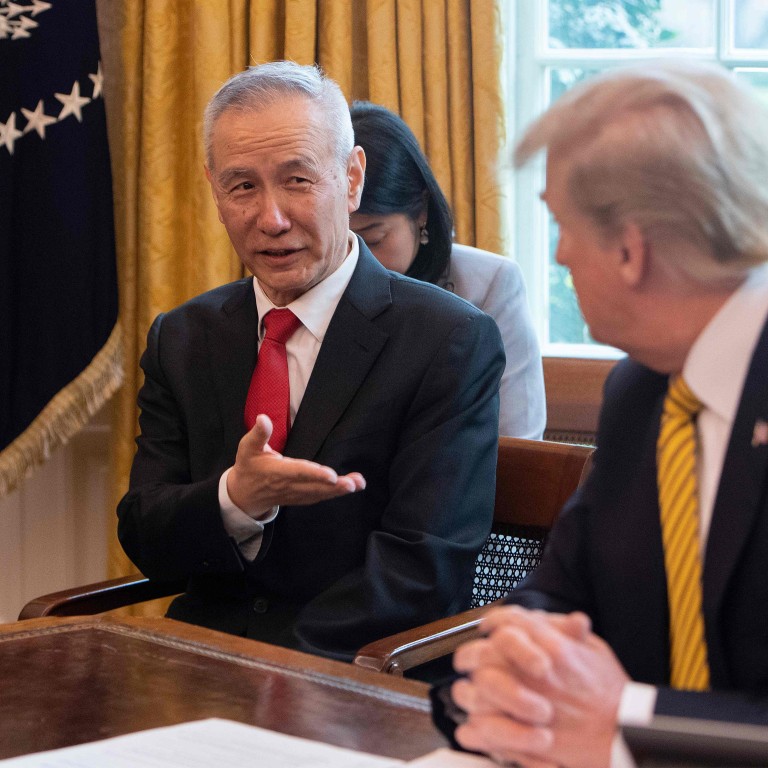
Donald Trump’s tariff delay ‘adds momentum’ before trade talks – but is a deal likely?
- Analysts split on whether gestures from United States and China have brought a trade agreement closer
The increase was originally due to take effect on the 70th anniversary of the founding of the People’s Republic of China.
The president said he had made the decision “at the request of Vice-Premier of China Liu He”, Beijing’s top trade negotiator, and as “a gesture of goodwill … due to the fact that the People’s Republic of China will be celebrating their 70th anniversary on October 1”.
“I think they did the right thing. I think it was good for them,” Trump said. “But it was a big move. People were shocked. I wasn’t shocked.”
The two countries’ top trade negotiators are to meet in Washington next month in the latest attempt to resolve their protracted trade war, with preparations for the meeting under way.
Gao Feng, the ministry’s spokesman, also said Chinese buyers had started to make price enquiries for US agricultural products, including soybean and pork, although he did not elaborate on any intended purchases.
State news agency Xinhua reported on Thursday night that Liu told Evan Greenberg, chairman of the US-China Business Council in Beijing, that China welcomed Trump’s decision to delay the tariffs.
The agency quoted Liu as saying that working groups from both sides would meet next week to discuss issues, including market access and protection for investors.
Chinese analysts said the moves by both countries would help to create more favourable conditions for the talks.
Shi Yinhong, director of the Centre on American Studies at Renmin University of China, said there had been a possibility of China cancelling the talks if the US had not delayed the tariff hike.
“The talks will go on, but there won’t be any major agreement reached unless the world economy and the US fall into a recession,” Shi said.
Lu Xiang, a research fellow on US issues with the Chinese Academy of Social Sciences, said: “Trump is eager to resume talks as soon as possible but China wanted Washington to create the conditions for constructive October talks.
“So Trump’s decision to delay the planned tariff increase for two weeks, regardless of how much goodwill he intends to express, is a move welcomed by China.”
China ‘ready to sweeten trade war deal’ by buying American goods
Lu said the planned tariff hikes, even with the delay, would jeopardise the prospect of any positive outcomes from next month’s negotiations.
“With the tariff rates being so high and covering so many products, the US side needs to make some concrete compromise – at least to cancel some of the previously increased tariffs on some products,” he said.
But Wang Yong, director of Peking University’s Centre for International Political Economy Research, said the likelihood of reaching a deal could be rising because Trump needed to be able to claim a victory on trade for his presidential re-election campaign next year.
“Now that both sides have expressed goodwill, the possibility for reaching a deal is on the rise, and the question is when?” Wang said. “The US is going to face pressure from a slowing economy, and if that happens around the election time, it would be bad for Trump’s chances.”
Additional reporting by Orange Wang


